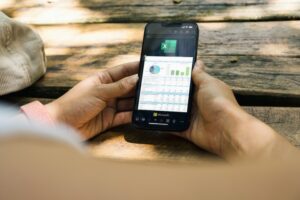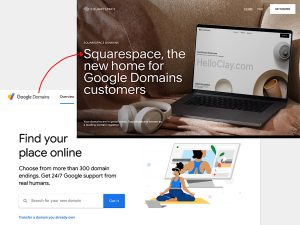Medable Inc. announces a multicompany research framework and launches a mobile app to connect homebound Americans with researchers to help find a remedy.
Medable Inc., the digital trial platform company based in Palo Alto, CA, has introduced a way to let Americans “do more from home” to power leading research in immunity, treatments, and vaccines for COVID-19, it said.
On Monday, the company announced the ACCESS initiative—American COVID-19 Collaborative Enabling Seamless Science—and introduced a mobile app, saying, “home is where the remedy begins.”
According to the announcement, the collaborative effort unites technology, healthcare and life sciences companies led by Medable and includes BioIntelliSense, Datavant, Parexel, PWNHealth, and the American Heart Association’s Center for Health Technology and Innovation.
SEE: Coronavirus: Critical IT policies and tools every business needs (TechRepublic Premium)
ACCESS is a way to accelerate research by reducing the time for enrollment and data collection, Medable said. The initiative aims to take advantage “of mobile and digital health technologies to facilitate at-home research, clinical trial access, and population-based long-term outcome studies,” according to a news release.
In an interview, Dr. Michelle Longmire, CEO and co-founder of Medable, said: “Obviously, we are all very impacted by COVID-19. Everyone’s thinking about, one, how do we stay safe being at home, and two, how do we go back to work and when.”
Answering the questions relies on research in two categories, Longmire said. Do people who have the infection have immunity, or if they don’t know if they have it but have the antibody, do they have immunity? The second category is around vaccines and treatment, she said.
Looking at ClinicalTrials.gov, Longmire said, Medable realized trials were rapidly increasing by the hundreds each week.
“If we took a standard research approach where each of these studies had its own framework and infrastructure, recruitment strategy and data collection strategy, we’d be really taking years versus thinking about how quickly we really needed solutions and answers to these fundamental questions around immunity and drug development,” she said.
That led Medable to invite partners to provide a framework to accelerate this type of research, Longmire said, knowing that a key component was reaching people at home.
“People are spending literally 24 hours a day at home,” she said. “They’re doing their workout videos, they’re cooking, learning languages. If we have five minutes of their time from home, we could collectively, radically, accelerate the end of COVID.”
According to the announcement, ACCESS lets individuals contribute specific information about their COVID-19 experience via the mobile app (iOS, Android to follow), combine it with health records and data from wearable devices, and opt-in to participate in current and future studies for diagnostics, treatments, and vaccines.
The data that people share can be quickly and anonymously matched to research studies, providing researchers with a foundational framework for dynamic research at scale, Medable said.
Participants opt-in at every stage, according to the announcement, so they maintain control over their health data—and decide how they want to engage in potential studies.
A partner in the effort, BioIntelliSense, announced in January that its on-body sensor BioSticker received FDA clearance. Dr. James Mault, its CEO, said in an interview that the physician-prescribed sticker makes remote monitoring and early detection simple.
According to the company’s description, the BioSticker, part of BioIntelliSense’s Data-as-a-Service (DaaS) platform, is to be discreetly worn on the upper left chest “for effortless remote data capture and a simplistic ‘stick it on and forget it’ patient experience.”
The device provides 30 days of continuous vital sign monitoring and feeds medical-grade data via a Bluetooth-connected device to a medical provider, according to the company.
“We all grew up with stickers as kids and they’re very familiar,” Mault said. “But the device has a critical accuracy of a device that’s used in the intensive care unit and has the ability to monitor all the critical vital signs that happen to be associated with COVID.”
BioSticker can monitor temperature, not just twice a day, which is being relied on right now, he added. What’s more, it monitors respiratory rates, heart rates, and even counts the number of times you’re coughing each hour, Mault said.
“As a clinician, being able to see this data continuously,” is necessary, “so every minute, every heartbeat, every temperature, every respiration,” he said.
“Now, in the course of 24 hours, instead of two measurements of temperature, we have 1,140 measurements of temperature, plus heart rate, plus respiratory rate, plus how often you’re coughing. You can imagine in the setting where we’re trying to bring people back to the workforce, we’ve been getting a tremendous surge of requests for the BioSticker in order to monitor people, especially in mission-critical settings like nuclear power plants.”
“This is all about, How are we going to be able to bring America back to work and be able to make it safe? And so it’s going to have to be a balanced approach with close monitoring wherever possible,” Mault said, adding, “and testing.”
Jason Martin, SVP, global data operations at the biopharmaceutical services company Parexel, another partner in the initiative, said, “Across our industry, we have seen remarkable innovation as a result of our collective commitment to bring therapies for COVID-19 to patients.”
“However, it is equally critical that we ensure that patients have access to therapies through clinical trials,” Martin added. “The ACCESS research framework provides a great example of leveraging innovation in data and technology to ensure that the right patient reaches the right study as we tackle this unprecedented pandemic.”
Here are contributions to the collaboration:
-
ACCESS provides screening, disease and immunity status testing, and general lab testing to qualified participants through PWNHealth’s national clinician network.
-
ACCESS enables participants to provide researchers access to de-identified health records, claims, diagnostic and other data sources via Datavant’s data infrastructure.
-
ACCESS removes key bottlenecks in research, making it easier for clinical trial leaders to recruit and monitor patients while shortening timelines for diagnostics, treatments, and vaccines. Parexel will help connect the right patients to the right studies.
For its part, the American Heart Association Center for Health Technology and Innovation will help to convene parties to develop novel ways of improving clinical care and research. Patrick Wayte, its SVP, said in an interview that the organization had worked with some of the partners before.
“As COVID-19 came into our personal and professional lives, our center wanted to find ways to explore ideas and solutions with digital health leaders,” Wayte said. “This network effect is one of the exciting elements of our active collaborations with digital health innovators.”
Also see
” data-credit=”Image: Medable” rel=”noopener noreferrer nofollow”>

Screenshot Medable ACCESS app.
Image: Medable
Source of Article




